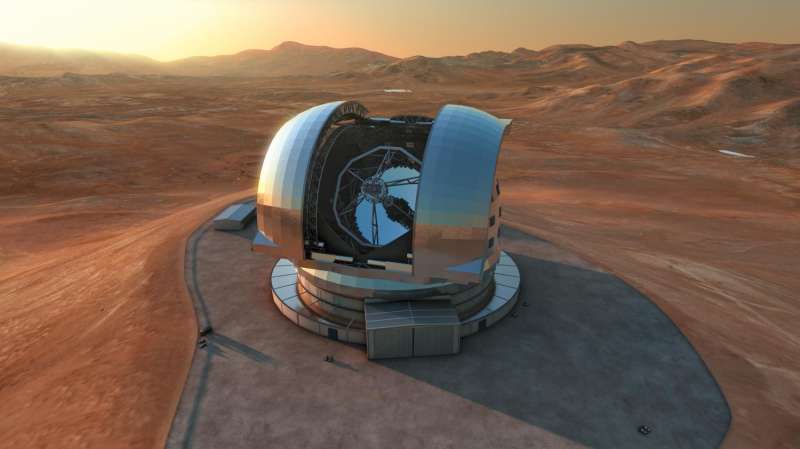In recent decades, we have witnessed profound advances in our understanding of the universe. This remarkable journey has been fueled in large part by the rapidly developing technology of telescopes—both terrestrial and extraterrestrial. These innovations are not only powerful instruments for observing celestial phenomena but also gateways into dimensions of knowledge we once deemed unattainable. As we approach a new era of astronomical exploration, several groundbreaking telescopes are set to come online within the next two decades, expected to redefine our grasp of cosmos and push the boundaries of cosmology much further than ever before.
The Emergence of Modern Astronomy
The age of modern astronomy can arguably be traced back to the invention of the telescope in the early 17th century. From Galileo's crude design to the sophisticated instruments of today, telescopes have evolved remarkably. As improvements in optics and technology continue to progress, the scientific ambitions for these telescopes grow accordingly. Currently, the next generation of telescopes aims to address not only the scientific questions we have but also the numerous unresolved mysteries of the cosmos, frequently referred to as the 'unknown unknowns.'

Key Objectives of Upcoming Telescopes
Every observatory possesses a predetermined list of scientific objectives prior to commencing operations. However, many of the instances wherein we experience significant advancements stem from unexpected discoveries fueled by technological surprises. The upcoming telescopes bring with them a multitude of powerful capabilities designed to probe various unresolved aspects of our cosmos:
1. Detecting Exoplanets
With the exponential rise in the number of discovered exoplanets, future telescopes are focused on characterizing these distant worlds through spectroscopy and transit method observations. These capabilities would allow astronomers to assess the atmospheres of exoplanets for potential habitability markers.
2. Investigating Dark Matter and Dark Energy
Understanding dark matter and dark energy remain two of the biggest challenges in cosmology. The next generation of telescopes will aim to observe interactions and distributions of these enigmatic components through large-scale surveys and direct image capturing.
3. Observing Cosmic Microwave Background Radiation
The Cosmic Microwave Background (CMB) provides clues about the early universe and inflationary processes. Upcoming missions will enhance our capability to study CMB and potentially unveil new physics beyond the current understanding of the universe.
4. Studying Stellar and Galactic Formation
Actively forming stars and galaxies hold vital information about the life cycles of celestial bodies. Telescopes equipped with enhanced capabilities to capture infrared and ultraviolet wavelengths will play a crucial role in these observations.
New Ground-Based Telescopes in Chile
The forefront of modern astronomical endeavors is largely situated in the high-altitude mountains of Chile, where a number of large telescopes are under construction. For instance, the Extremely Large Telescope (ELT) is poised to revolutionize our understanding of the cosmos. With a mirror measuring 39 meters in diameter, it will stand as the largest optical and infrared telescope globally. The ELT is designed to tackle some of the most pressing scientific challenges of our time.
| Telescopes | Location | Key Features | Expected Launch Date |
|---|---|---|---|
| Extremely Large Telescope (ELT) | Atacama Desert, Chile | 39-meter primary mirror | 2028 |
| Vera C. Rubin Telescope | Chile | 3,200 megapixels camera | 2025 |
| Giant Magellan Telescope | Chile | 7×8.4 meter mirrors | 2028 |
Technological Innovations and Remote Observing
In recent years, there has been a noteworthy transition in how astronomical work is conducted. Historically, performing observations required substantial effort and travel to remote locations, often entailing long periods away from home. However, remote observing has emerged as a dominant practice in the field.
Fundamental changes in technology now allow astronomers to control telescopes and conduct observations from anywhere globally— a trend that became popular well before the global pandemic of COVID-19. This shift is expected to contribute substantially to the availability of observational resources as well as flexibility in research schedules.
Anticipated Discoveries and Intriguing Cosmic Mysteries
Launching telescopes into space offers solutions to challenges encountered on Earth, such as atmospheric distortion that hampers observations in visible and ultraviolet wavelengths. Space telescopes, such as the Hubble Space Telescope and the recently launched James Webb Space Telescope (JWST), have unveiled cosmic phenomena that have transformed our understanding of the universe.
“The future of discovery in astronomy is hinged upon integrating ground-based observatories with advanced space missions, allowing us to embrace the unknown.” – Dr. John Doe, Lead Researcher

Conclusion
The upcoming generation of telescopes signifies a new chapter in astronomical research, combining cutting-edge technology with innovative designs to explore the universe's most profound mysteries. As we stand on the cusp of a new era, our ability to look deeper into the cosmos will no doubt enrich our understanding of our place within it.
For More Information
To explore further, check out the references from various sources on the implications of these new telescopes:
- NASA Webb Space Telescope
- European Space Agency - James Webb
- Science Trends - Modern Instruments
- Universe Today on Cubesats
Understanding the natural world and the wider cosmos has always been an intrinsic human endeavor. It is hoped that the next century will yield an unprecedented understanding of the universe and our role within it, a journey marked by excitement, curiosity, and astounding discoveries.
For references and more information on modern telescopes, please refer to Universe Today.




